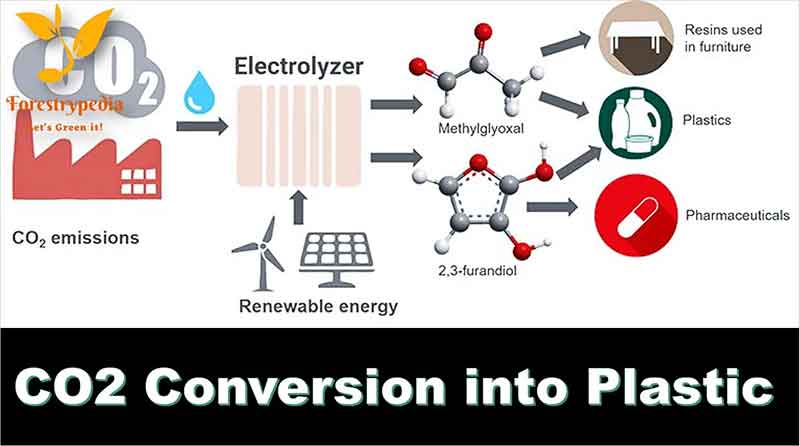
There is widespread acknowledgement that the present-day structures of society are ill-prepared to address the needs of humanity in its current travails. Therefore, cooperation and reciprocity should be our highest priority. The stronger the ties of fellowship and solidarity, the greater will be the power of constructiveness and accomplishment in all the planes of human activity. In the economic sphere common concerns such as ensuring free flow of goods and services, a smoother supply chain, technology transfers, monetary regulations, dangers of disruptive technologies, inter alia are the staple agenda of most countries. At the same time summit gatherings are being held at regular intervals to address the ecological crises–be it environmental degradation in the form of loss of biodiversity, climate emergencies, natural disasters, pollution of air, water and soil and other issues covered by the Agenda 2030—Sustainable Development Goals. Occasionally, in other fields such collaborative space exploration programs are bilaterally or multilaterally promoted.
On this World Environment Day how should be make a positive dent at a time when serious conflicts and wars are pushing societies and nation-states to the limits of their endurance, and the very survival of civilization, as we know it. It is well understood that the welfare of the part means the welfare of the whole, and the distress of the part brings distress to the whole. When will humanity pass through the gravest perils it is currently facing and emerge on the other side with greater insight and a deeper appreciation of its inherent oneness and interdependence? Who is listening, voices of sanity get continually drowned by the explosion of bombs and missiles. 2023 World Environment Day is themed: “Solutions to Plastic Pollution?” This will the 50th edition since the first one in 1973. The host countries are Côte d’Ivoire in partnership with the Netherlands.
Côte d’Ivoire is showing leadership in the campaign against plastic pollution. Since 2014, it has banned the use of plastic bags, supporting a shift to reusable packaging. The country’s largest city, Abidjan, has also become a hub for environmentally minded start-ups. “The scourge of plastic pollution is a visible threat that impacts every community,” says Jean-Luc Assi, Côte d’Ivoire’s Minister for the Environment and Sustainable Development. “We are proud to champion diverse treatments for the plastic pandemic.” On the other hand, Vivianne Heijnen, Minister for the Environment of the Netherlands, the supporting country said, “Plastic pollution and its detrimental impacts on health, the economy and the environment cannot be ignored. Urgent action is required. At the same time, we need true, effective and robust solutions.” She further stated: “As part of several policies aimed at plastics, the Netherlands and the European community at large are fully committed to reduce the production and consumption of single-use plastic, which can and must be replaced with durable and sustainable alternatives.”
Global plastic production has risen exponentially in the last decades. It now amounts to some 400 million tons per year. Yet only an estimated 12% of the plastics produced are incinerated and only an estimated 9% get recycled. The remainder is either disposed of in landfills or released into the environment, including the oceans. Without meaningful action, flows of plastic waste into aquatic ecosystems are expected to nearly triple from around 11 million tons in 2016 to around 29 million tons in 2040.
As the world’s largest democracy but not the oldest, India is a young nation where 60% of its population are below 35 years of age. With a solid mandate encapsulated in its civilizational motto: Vasudhaiva Kutumbakam—One Planet, One Family, One Future, India is well poised to lead the Global South. The inauguration of the new Parliament Building built in record time of two-and-half years at the cost of approximately Rs. 970 crores, should further steel the resolve of all citizens to present the best that is in each one of us along with showcasing the finest that our tradition and culture can offer during this year of G20 presidency.
The government has made a rule to ban single use plastic. Unfortunately, three such government notifications of banning single use plastic were ignored by the majority of the population. What this goes to show is that no rule or policy is going to work unless we, the citizens, take ownership. Building capacity in more and more people cutting across cultural, religious, class, caste, creed and political ties with the ultimate objective of promoting universal participation for taking the country to new heights of prosperity and peace is the most important task on hand.
In traditional thinking about development, theories of modernization were based on particular definitions of progress and held certain assumptions about the nature of human beings and nature of the societies that have emerged over millennia of time. A change of mindset towards consumption and use of plastics has become an urgent priority and one more imperative for life-style changes. Today we use plastic for every piece of instrument we come across, whether it’s a simple carry bag or a complicated machine. In the developing world, the applications of plastic may differ; for example, over 42% of India’s plastic consumption is used in packaging.
A multi-pronged approach to tackling the menace of plastic pollution includes judicious application of technology and scientific expertise, a strong political will, public awareness through life-style changes and engaging educational institutions from schools, to colleges to universities. The success of the Swachh Bharat Mission also addresses the implementation of activities bearing upon single plastic use through Plastic Waste Management Rules, 2016. It mandates that every state and union territory in the country constitutes a Special Task Force for elimination of single use plastics and effective action. To assist the states and union territories a National Level Task Force was set up by the Government for coordinating efforts to eliminate identified single use plastic item and effectively implementing the Plastic Waste Management Rules, 2016.
Additionally, to encourage innovation in development of alternatives to identified single use plastic items and digital solutions to plastic waste management, the India Plastic Challenge—Hackathon 2021, was organized for students of Higher Educational Institution and start-ups recognized under Start-up India Initiative.
Other actions that can immensely boost the macro-level initiatives by the Government and the Corporates that including the public-private-partnerships technology plants for converting post-consumer single use plastics to fuel oil. At the grassroots there are efforts to build capacity of youth through campaigns for reducing the most prominent sectoral usage of plastics such as packaging industries. Statistical surveys show that only 14% of plastic packaging globally make their way to the recycling plant and only 9.5% are actually recycled while 40% ends up in landfills permanently. At individual or family level let us do the following: i) cook from raw materials to reduce food waste and packaging; ii) cut back on unnecessary packaging by trying out scoop shops, or by buying from green grocers and delis; iii) buying materials in bulk to reduce the number of plastic packages; iv) carrying our own carry bag made from recyclable or cloth-based bags; v) using stainless steel tiffin boxes and spoons for carrying the food.
For those desirous of more practical ideas, let me mention just two initiatives. An eco-club at an institution of higher learning, the students created an eco-brick. It is a building block made entirely from unrecyclable plastic by filling a plastic bottle with clean, dry plastic until it is packed tightly. The durability of the plastic makes it an ideal building material when joined together with proper joinery of mortar during the building construction. In addition to reducing the amount of plastic into various landfills, this is a highly efficient technique for reducing our environmental footprint. A second initiative was by a non-governmental organization that used plastic bottles which were flattened; shredded portions from the sides of the bottle were turned into straps for producing open footwear of various sizes.
It is hoped that by making “#BeatPlasticPollution” a peoples’ movement we can all contribute to the mission for Swachh Bharat. Through these simple doable initiatives new insights would be gained and systematization of learning begins to take shape in villages and urban neighbourhoods throughout the country. After all we Indians are not lacking in “jugaad” innovations in solving many of our day-to-day problems.
Dr. A. K. Merchant is a social worker, independent researcher serving a number of nongovernmental and semi-autonomous governmental institutions. Views expressed are personal.















































